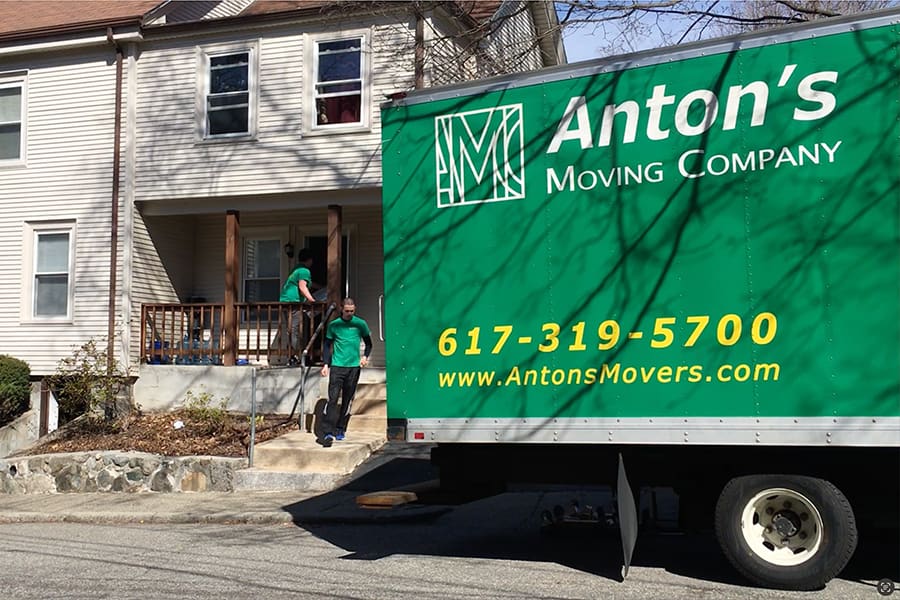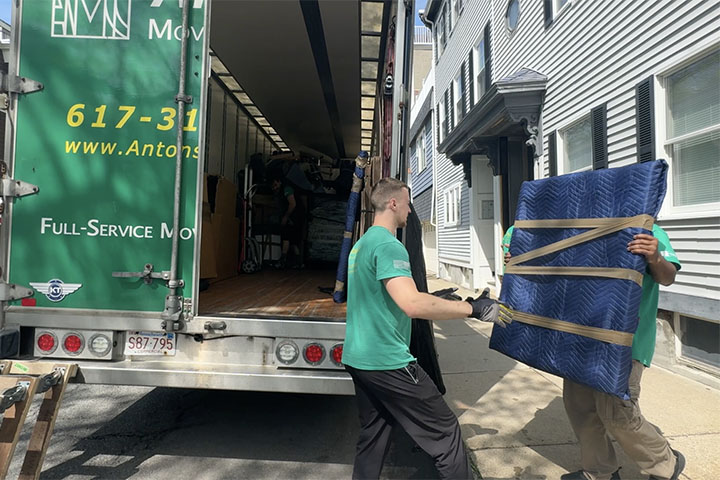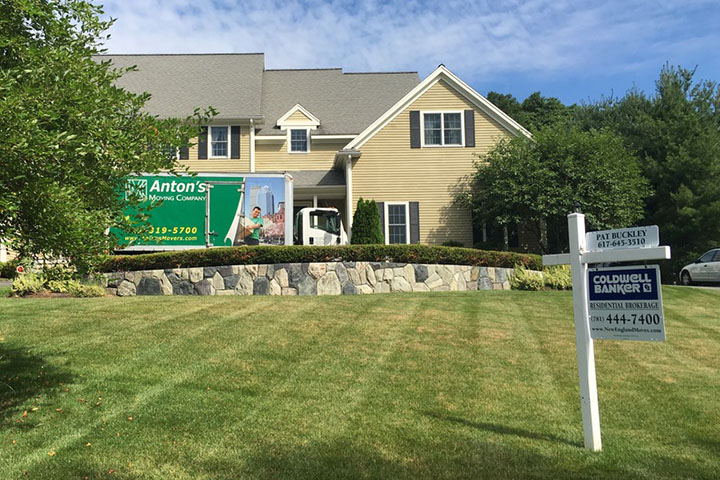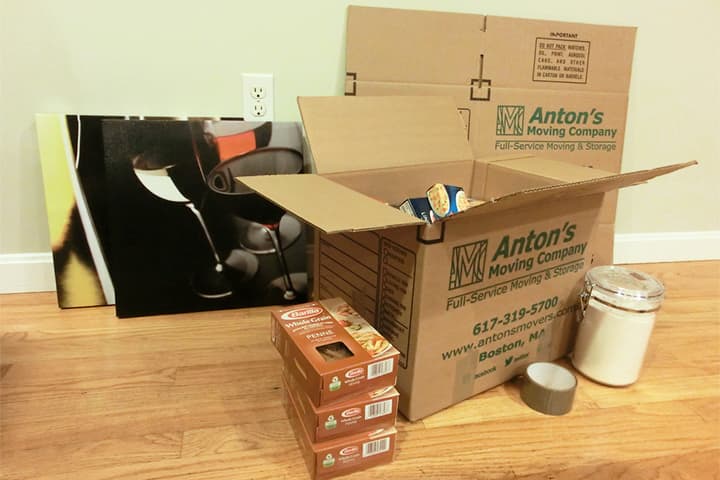Relocating from Upstate New York to Boston
August, 2025 Time: - 12 minute read

A lot of families in Upstate New York are packing boxes for Boston. And the trend isn’t slowing down.
It’s not a sudden urge. It builds. One part restlessness, one part strategy. They look at schools, job markets, community events, even walkability. They check those little neighborhood forums. Then they look at each other and say, “This could work.”
If Boston’s calling your name, don’t try to figure it out alone. Anton’s Movers has helped families trade the quiet pace of Upstate New York for Boston’s energy more times than we can count. Give us a call at +1 (617) 319-5700 or visit our website to get a free quote and start dealing with your move in advance.
Why Families Are Leaving Upstate NY for Boston
The hometown charm doesn’t disappear. But it stops carrying you forward. And when things stop moving, people start looking.
Stagnating Economy and Limited Growth
Drive through parts of Upstate and you’ll see it. A few more ‘For Lease’ signs. Empty lots where hardware stores used to be. The schools still care, but funding’s been cut, again.
Some parents wait it out. Others count job listings in a 20-mile radius and feel the pit in their stomach.
- “I’m still commuting 90 minutes just to stay in my field.”
- “There’s nowhere for our kids to intern once they’re in high school.”
- “We used to have a weekend art market. It’s gone.”
Not because people don’t care, but because towns need fresh fuel, and many are running low.
Shifting Priorities After the Pandemic
Once work could be done in slippers, families stopped pretending location didn’t matter. The pandemic broke routines wide open. And in the cracks, people saw choices.
- What’s nearby if someone gets sick?
- Can our kids grow into this town, or will they have to leave?
- Are we staying here just because we always have?
Cost of Living Comparison: Upstate New York vs. Boston
This isn’t a “save money by moving” blog. Boston is expensive. That part’s not a debate. What matters is what the price covers and how it changes the everyday.
Housing Costs and Value Trade-Offs
The math feels wild at first. Median home prices in Greater Boston hit $1 million in 2025. Albany, Buffalo, Rochester, Ithaca, Syracuse? Try $240,000–$330,000. That’s not a gap but rather a canyon.
But then people visit. They walk around Jamaica Plain or Arlington. They see kids walking to school without needing a ride. They count four parks within ten blocks. And the price tag becomes… complicated.
Rent’s no small number either. According to Numbeo, you’d need $9,400 a month in Boston to match the same lifestyle you’d get for $6,700 in Albany. Still, there’s nuance here. Boston trims other costs: fewer cars, better transit, denser errands, real public libraries.
- “We’ll give up our big yard, but gain a bikeable neighborhood.”
- “One car instead of two.”
- “We can spend less time driving and more time just… being near things.”
Everyday Expenses and Taxes
Groceries lean pricey. Childcare can hurt. But MA’s 5% flat income tax is easier to predict than NY’s tiered system. And in Boston, your tax dollars show up. In snowplows that arrive on time. In parks that feel alive, not forgotten.
Better Job Opportunities and Career Growth in Boston
Boston doesn’t just have jobs. It feeds them. Grows them. Bounces ideas between buildings and suddenly creates a new sector.
High-Demand Sectors and Ecosystems That Don’t Sleep
Life sciences. EdTech. Green energy. Finance. Higher ed. Boston doesn’t choose one industry and hope it lasts. It builds layers. And that makes the market resilient.
There are over 50 colleges in Greater Boston. That means hundreds of labs, think tanks, startups, and professional crossroads. A BU grad gets coffee with a Brigham & Women’s researcher and a third person walks in saying, “Hey, we’re hiring.”
This isn’t theory. It happens daily.
Two Careers, One Zip Code
Dual-income households don’t have to sacrifice. One parent doesn’t get stuck commuting to the next state just to stay employed.
- Work that aligns with skills, not just availability
- New paths every few years without uprooting the whole family
- Communities where careers evolve, not expire
Education & Universities: Why Parents Choose Boston for Kids
This is often the tipping point. The thing that pushes “maybe” into “let’s do it.”
K–12 Options That Stretch Minds
Boston offers public schools, charters, magnets, parochial programs, and progressive independent academies. That’s not marketing fluff. Parents talk about STEM pilots, dual-language kindergartens, arts-heavy middle schools.
Some schools partner directly with colleges. Imagine your 9th grader coding with MIT grad students after school.
- IB and AP tracks that don’t feel like pressure cookers
- Support for neurodiverse learners that’s funded and staffed
- Literacy programs that bring in real authors, not worksheets
College Feels Close Because It Is
Harvard, MIT, BU, Northeastern, Tufts, UMass. That list alone changes how kids think about what’s possible.
In Boston, you walk past a university almost anywhere. Kids get used to hearing guest lectures, joining summer camps, even visiting student-run museums. College becomes something tangible, not just a brochure in 11th grade.
Lifestyle Shift: Big Moves, Small Joys
There’s a moment when it hits. Maybe it’s while sipping coffee on a bench at the Arnold Arboretum, or while walking your kid past the Symphony Hall banners on the way to school. You’re still doing everyday things, but the backdrop feels rich.
Cultural Access Without the Commute
Boston makes it easy to swap YouTube for the real thing. Want science? Go to the Museum of Science. Art? MFA. History? Freedom Trail.
- Local festivals with actual food trucks, not just funnel cake
- Year-round programming: music, lectures, film, tech
- Libraries that feel like community centers, not just book warehouses
Diverse Voices, Real Conversations
This isn’t a city of copies. It’s a city of origins. You hear Portuguese in the bakery. Cantonese in the park. Arabic at the bus stop.
Boston isn’t perfect. But it tries and it listens. That means your kids grow up knowing difference as normal. That matters.
Challenges Families Face When Moving to Boston
Boston isn’t the kind of place you coast into. It’s layered. Particular. You need to earn your place into rhythm. But once you do, it starts to feel like it was waiting for you all along.
Budgeting for the Jump
Getting your foot in the door (literally) costs money. Renters often face requests for first month, last month, and a security deposit, all at once. In neighborhoods like Cambridge, Brookline, or Somerville, that can mean shelling out $9,000–$12,000 upfront. And that’s before you pay movers or pick up the keys.
Buying doesn’t offer shortcuts either. A single-family home might require a down payment north of $200,000 just to compete. Interest rates don’t help. Even families with solid savings find themselves recalculating more than once.
It’s not about panic. It’s about prep. Families who take the time to:
- Research neighborhoods that fit their budget and pace
- Get pre-approved early, before listings drop
- Explore programs for first-time buyers or city employees
tend to land softer, with fewer surprises.
Moving Logistics
Long-distance moves come with their own set of curveballs. You’re crossing miles of tolls and highways, and you need to handle all this without damaging your most precious belongings.
Packing for a move like this means thinking about how your old life fits into a smaller apartment. Driveways turn into parallel parking. Spare bedrooms become shared playrooms. Timing matters too. Some Boston leases start on the first of the month - all of them. That means August 31 turns into a traffic jam of moving trucks with nowhere to stop. That’s exactly where planning with a professional team specialized in Upstate New York to Boston moving jobs helps.
Settling In Takes Time
Boston doesn’t wrap its arms around you right away. People have their circles, and those circles don’t break open on command. The T runs late. Parking rules feel like riddles. And if you’ve never joined a lottery just to get on a preschool waitlist, well… welcome to the club.
But here’s the thing. Belonging shows up slowly, and often where you least expect it. It’s the neighbor who helps dig your car out after a snowstorm without being asked. The woman behind you at the library checkout who mentions the music program her kid loved. The dad at soccer practice who offers a carpool before you even know his last name.
Boston has layers. You get through them by showing up. Again and again. That’s how roots take hold.
Final Thoughts
You don’t leave Upstate New York because you hate it. You leave because your family starts asking better questions. And Boston isn’t a quick fix, either. It demands a little more and hands back more than you expect, just not all at once.
You’ll pay more. You’ll walk more. You’ll probably learn a dozen street names and still get lost once a week. But you’ll also meet neighbors who stay, schools that grow with your kid, and a city that keeps making room for more.
When it’s time to move, and the what-ifs start stacking up, we show up. Anton’s Movers knows this route. We’ve driven it in the rain, in August heat, in the middle of school-year transitions, and we still show up with a plan. Give us a call, and we’ll take it from there. You’ve got enough on your plate.


